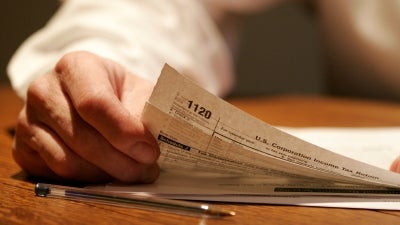
If you plan to start a new business, or you’ve just opened your doors, it is important for you to know your federal tax responsibilities. Here are five basic tips the IRS provides that can help you get started.
1. Type of Business. Early on, you will need to decide the type of business you are going to establish. The most common types are sole proprietorship, partnership, corporation, S corporation and Limited Liability Company. Each type reports its business activity on a different federal tax form. You should consult with an attorney and you’re your Enrolled Agent prior to making the decision.
2. Types of Taxes. The type of business you run usually determines the type of taxes you pay. The four general types of business taxes are income tax, self-employment tax, employment tax and excise tax.
3. Employer Identification Number. A business often needs to get a federal EIN for tax purposes. Check IRS.gov and/or your Enrolled Agent to find out whether you need this number. If you do, you can apply for an EIN online.
4. Record Keeping. Keeping good records will help you when it’s time to file your business tax forms at the end of the year. They help track deductible expenses and support all the items you report on your tax return. Good records will also help you monitor your business’ progress and prepare your financial statements. You may choose any record keeping system that clearly shows your income and expenses. Good records are essential to surviving an audit.
5. Accounting Method. Each taxpayer must also use a consistent accounting method, which is a set of rules that determine when to report income and expenses. The most common are the cash method and accrual method. Under the cash method, you normally report income in the year you receive it and deduct expenses in the year you pay them. Under the accrual method, you generally report income in the year you earn it and deduct expenses in the year you incur them. This is true even if you receive the income or pay the expenses in a future year.
This article was originally published by TaxConnections
Author: Steven Potts
An Enrolled Agent and U.S. Tax Court Practitioner, I represent taxpayers in front of the IRS and the U.S. Tax Court on self-prepared tax returns and tax returns prepared by other tax preparers. I handle CDP hearings, collection cases and contested issues in IRS audits. With more than three decades of experience working with small individual returns to large, multi-company and multinational companies returns I have a broad breadth of experience and am in the position to help you.
Published: October 17, 2013
2658 Views
2658 Views












